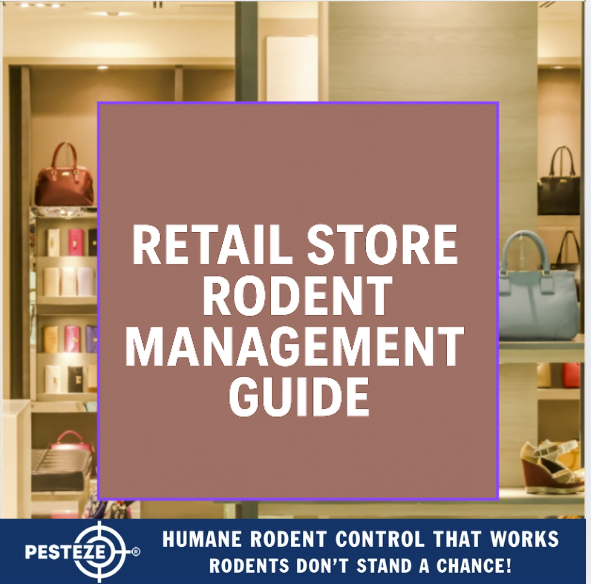RETAIL STORE RODENT MANAGEMENT GUIDE

RETAIL STORE RODENT MANAGEMENT GUIDE
SUMMARY
Rodents pose serious threats to retail stores by damaging goods, contaminating products, and driving customers away. Learn how to safeguard your store with preventative measures, sanitation practices, and safe exclusion methods to protect your business and reputation.
FEATURES
-
Entry Point Sealing: Block gaps, cracks, and vents to prevent rodent access.
-
Sanitation Practices: Maintain clean storage areas and dispose of trash promptly.
-
Rodent-Proof Storage: Use sealed containers for food, packaging, and paper products.
-
Monitoring Systems: Install traps, cameras, or professional detection devices.
-
Staff Training: Educate employees on early signs of rodent activity.
-
Professional Pest Control: Partner with licensed experts for long-term solutions.
DESCRIPTION
Retail stores are particularly vulnerable to rodent infestations due to constant foot traffic, product storage, and waste buildup. Mice and rats not only destroy packaging and contaminate goods, but they also tarnish a store’s reputation. To protect your customers, products, and brand, it’s essential to implement a strong rodent management plan.
The first step is exclusion—rodents can squeeze through tiny cracks and gaps. Inspect walls, doors, ceilings, and utility lines for potential entry points and seal them with durable materials like steel wool or caulk. Weatherstripping around doors and rodent-proof vent covers add further protection.
Sanitation is equally critical. Rodents thrive where food and trash are available. Keep storage rooms spotless, clean up spills immediately, and schedule frequent garbage disposal using sealed bins. A clean retail environment not only deters rodents but also enhances the shopping experience for customers.
Rodent-proof storage is a must for any store handling food, packaging, or paper goods. Airtight containers keep items safe from gnawing and contamination. Storing products off the floor and away from walls reduces nesting opportunities.
Monitoring systems help detect rodent activity before it escalates. Snap traps, glue boards, or digital monitoring devices can identify infestations early. Surveillance cameras in storage areas are also effective in spotting suspicious activity.
Staff training plays a vital role in prevention. Employees should recognize signs of infestation, such as droppings, gnaw marks, or unusual odors. Creating a reporting system ensures swift action when issues arise.
Finally, partnering with professional pest control services ensures comprehensive, ongoing protection. Experts can provide tailored solutions, routine inspections, and emergency responses to keep rodents away for good.
By combining entry prevention, sanitation, monitoring, and professional support, retail stores can maintain a rodent-free environment. Proactive rodent management not only safeguards inventory but also preserves customer trust and ensures smooth day-to-day operations.
- Aahna Barma


Comments 0